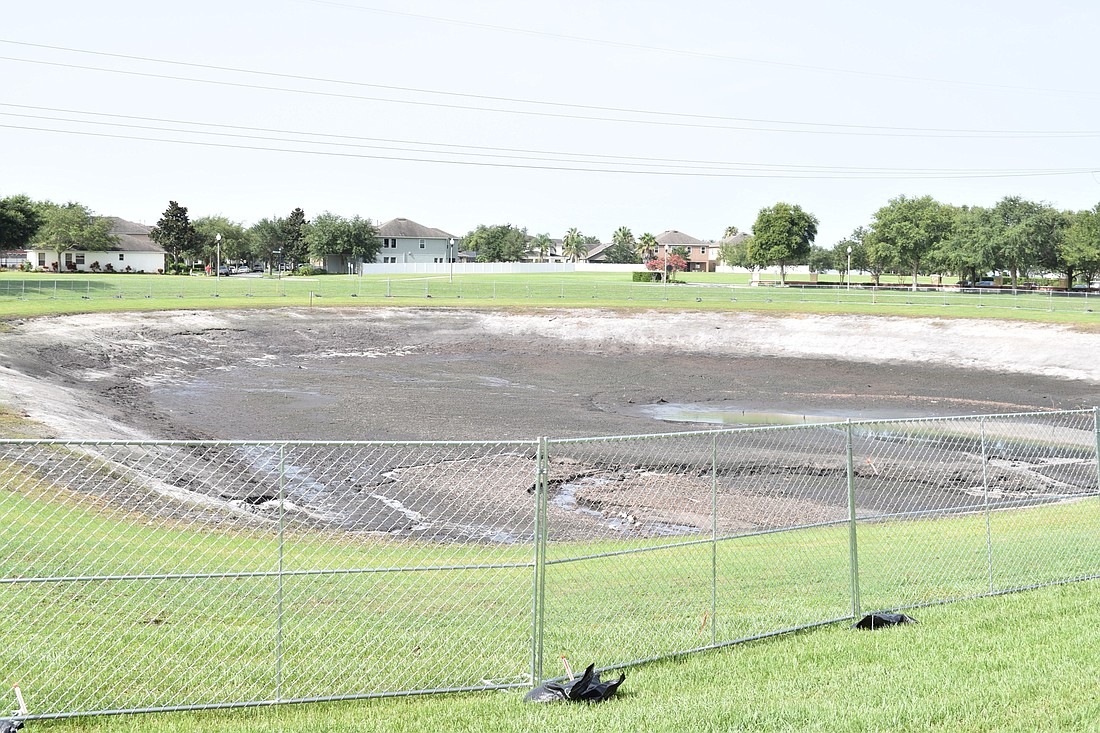- April 25, 2024
-
-
Loading

Loading

Orange County officials are working to determine what caused sudden water loss in a Horizon West pond recently.
Late last month, residents in the Independence neighborhood reported the water in a pond next to the community’s Falcon Square clubhouse was dropping.
According to residents, the pond — located on Avenue of the Groves — is home to various fish, birds, turtles and other wildlife. Within a few days of the water loss, though, it was almost fully drained.
The pond is county property, and officials have been evaluating it for a couple of weeks now to find a cause behind the drainage.
“We have been checking the site daily and have not seen any expansion of the pond boundary itself,” said Kelly Finkelstein, senior public information officer for Orange County. “The area has not shown any indication of getting larger and is confined to the county parcel across the street from any apartments or homes. We secured the area with fencing last week to eliminate potential hazards.”
Mike Drozeck, stormwater manager for Orange County, is working with a consultant from CDM Smith to perform tests on the area to identify the cause and loss of water from the pond. Finkelstein said the consultant is evaluating the pond, already has met county officials on site and has geotechnical experts who will be working expediently to provide their expert opinion and recommendations.
On July 6, Drozeck said, the county issued CDM Smith a purchase order and a notice to proceed. CDM Smith will be conducting a geotechnical investigation. This includes four cone-penetration test soundings to depths of up to 100 feet around the pond; a standard penetration test boring to a depth of up to 200 feet as close as possible to the pond; a piezometer to a depth of up to 150 feet to monitor Floridian Aquifer potentiometric elevation; and one piezometer to a depth of 30 feet to monitor the water table.
The cone penetration and standard penetration tests are used to determine the geotechnical properties of soils, such as relative density, shear-strength parameters and other subsurface information.
“After the geotechnical investigation is completed to determine the cause of the water-level drop in the pond, remedial recommendations will be developed,” Drozeck said. “It is estimated that the aforementioned work will be completed in two months.”